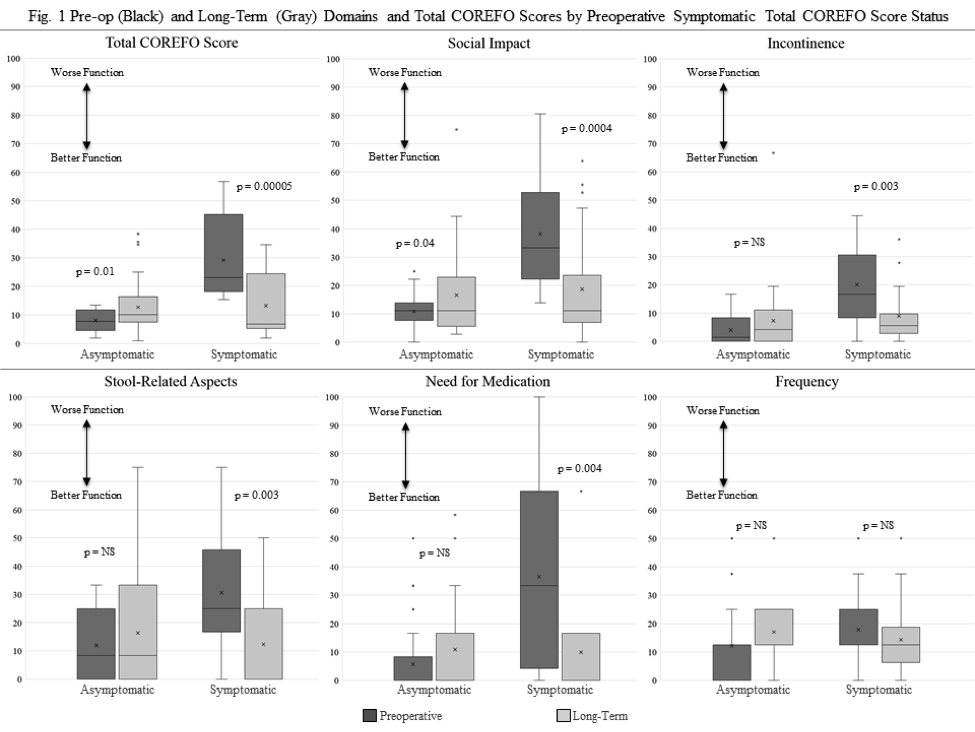What are the Long-Term Changes to Bowel Function Patient-Reported Outcomes After Elective Sigmoidectomy for Diverticular Disease?
*Phillip Gray, Jenaya Goldwag, *Mark Eid, Srinivas Ivatury
Dartmouth Hitchcock Medical Center, Lebanon, NH
Objective: We aimed to evaluate long-term changes to bowel function after elective sigmoidectomy for diverticular disease. Design: This was an observational study of patients that underwent elective sigmoidectomy for diverticular disease and completed the Colorectal Functional Outcome (COREFO) questionnaire prior to surgery. Setting: Academic tertiary care center in rural setting Patients: Fifty-one patients met inclusion criteria for the study and then stratified into two groups based on presence or absence of preoperative symptomatic score (COREFO > 15). They were 30 asymptomatic patients and 21 symptomatic patients. Interventions: Long-term bowel function (> 1 year from surgery) was assessed using the COREFO questionnaire via telephone or subsequent clinic visit. Main Outcome Measures: Mean preoperative COREFO questionnaire scores were compared to mean long-term scores using a paired t test. Results: Median time from operation to questionnaire completion was 23 months (IQR: 13-34). Asymptomatic patients demonstrated significant worsening in global bowel function, driven by changes in the social impact domain (Figure 1). Symptomatic patients demonstrated significant improvement in bowel function, driven by improvements in the incontinence, social impact, stool-related aspects, and need for medication domains (Figure 1). Conclusions: In the long-term after elective sigmoidectomy for diverticular disease, patients with symptomatic preoperative bowel function have substantial improvement in bowel function, while those with asymptomatic preoperative bowel function demonstrate significant impairment. PRO-measured symptomatic patients likely benefit long-term from sigmoidectomy. 
Back to 2020 Abstracts
